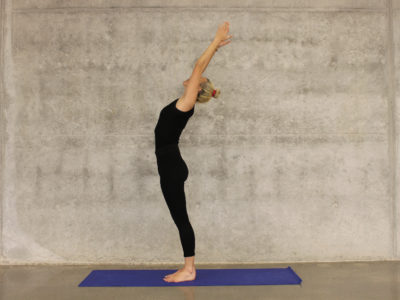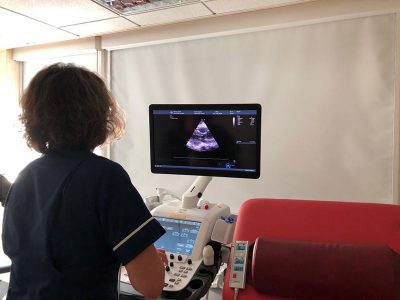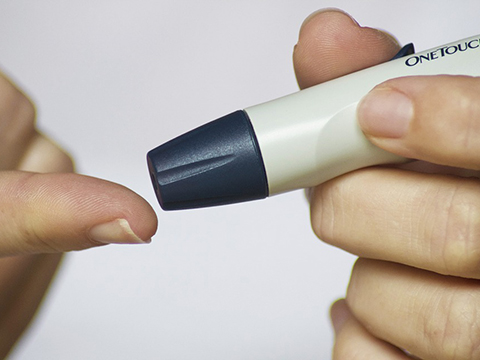The 4 things you need to know about cerebral palsy
What is cerebral palsy?
Usually caused by an injury to the brain before, during or after birth, Cerebral palsy is a condition affecting muscle control and movement.
Why do children have cerebral palsy?
There is no one obvious reason why a child has cerebral palsy, but the main causes are; infection in the early part of pregnancy, lack of oxygen to the brain, abnormal brain development, or (rarely) a genetic link.
What is the most common type of cerebral palsy?
Spastic cerebral palsy, which is present in 75% – 88% of people with cerebral palsy. Spasticity refers to the muscle tone being tight (hypertonia) with a decreased range of movement. It can affect different and many areas of the body so a person with spastic cerebral palsy could, in addition to impaired mobility, have difficulties with speech or continence.
What are other possible symptoms of cerebral palsy?
About one in three children with cerebral palsy are unable to walk. Motor control, learning or cognitive impairment, Constipation, muscle spasms or problems with sleeping and sleep patterns, epilepsy (up to a third of children with cerebral palsy), difficulties with hearing (but only 8% of cases), speech or feeding, psychological behaviours (inattention, anxiety, over activity) may develop in a quarter of children with cerebral palsy.
Within 5 minutes Jade will have you smiling with her infectious positivity. However she’s in constant pain and denied a vital operation, because she’s Welsh.
Alarmingly, 14 year old Jade from Bridgend is one of many children in Wales with Cerebral Palsy who must raise up to £60,000 and travel 4,085 miles to a hospital in Missouri, America, for an operation to help them walk independently. Meanwhile, just across the Severn Bridge, children in England with Cerebral Palsy can get NHS funding and obtain the operation in Bristol.
Several hospitals in the UK, including Frenchay hospital in Bristol, are performing Selective Dorsal Rhizotomy (SDR), a 4-5 hour operation which destroys problematic nerve roots in the spinal cord, helping young Cerebral Palsy patients to walk independently.
Next month it will be 125 years since the operation was first successfully performed in New York; however funding is still not available for Welsh children, which the 3 main Welsh Health bodies say is due to a ‘lack of evidence’.
A grey area
On 1 February 2012, The Welsh Health Specialised Services Committee (WHSSC), which is responsible for access to specialised services in Wales, concluded that there is a lack of clinical evidence at this time to support SDR.
This reiterates the January 2012 NHS Wales Evidence report declaring there is limited long-term data available, and the National Institute of Clinical Excellence’s view that further research into this procedure and measurement of long-term outcomes is necessary.
This could be because the effects of this irreversible operation (both positive and negative) may take several years to become fully evident so research must be long-term and therefore costly.
However, Doctor Park from The St Louis Children’s Hospital, disagrees with these claims about a lack of evidence. “Of all the surgical procedures currently performed on patients with Cerebral Palsy, SDR has undergone more thorough scientific study than any other (including the alternative surgery provided in the UK by the NHS).”
Doctor Park has completed this procedure since 1987, and as of last Friday, performed 2,513 SDR operations. He says the operation is completely safe, ‘out of over 2500 children only 0.25% had complications. There were no cases of paralysis, bladder incontinence or loss of sensation’.
The costly wait
Already over 60 children in Wales have been denied funding for SDR, the Health Service Journal points out, meaning until these health bodies decide there is enough evidence, Welsh families have no other choice but to raise the huge funds.
Sue Hurrell, who successfully fundraised enough for her daughter to have the surgery in Missouri this year says, “One thing to mention is that as well as the sheer physical and mental exhaustion of fundraising, how degrading it can feel having to beg for money for your own child. How you open yourself up to scrutiny on your income. How it feels difficult justifying holidays and treats for ages afterwards.”
But after speaking to a representative of WHSSC this week it was revealed there is hope for Welsh families. “The Welsh Health Specialised Services Committee is currently reviewing its policy on Selective Dorsal Rhizotomy (SDR) in light of updated guidance. It is expected the updated policy will be ratified by WHSSC’s joint committee in March.”
Until then, the tragic paradox remains. It may be the case that there is a lack of evidence for SDR, but this still does not explain why the NHS is offering funding in England but not Wales.
Jade’s father, David Owens, a carer from Cardiff articulates “It is totally unjustified to offer this life-changing surgery on one side of the Severn Bridge, but not the other. It feels like we are the forgotten people.”
Jade and her father talk about their experience
[youtube]http://www.youtube.com/watch?v=P1_N4aistso&feature=youtu.be[/youtube]
The 4 things you need to know about cerebral palsy
What is cerebral palsy?
Usually caused by an injury to the brain before, during or after birth, Cerebral palsy is a condition affecting muscle control and movement.
Why do children have cerebral palsy?
There is no one obvious reason why a child has cerebral palsy, but the main causes are; infection in the early part of pregnancy, lack of oxygen to the brain, abnormal brain development, or (rarely) a genetic link.
What is the most common type of cerebral palsy?
Spastic cerebral palsy, which is present in 75% – 88% of people with cerebral palsy. Spasticity refers to the muscle tone being tight (hypertonia) with a decreased range of movement. It can affect different and many areas of the body so a person with spastic cerebral palsy could, in addition to impaired mobility, have difficulties with speech or continence.
What are other possible symptoms of cerebral palsy?
About one in three children with cerebral palsy are unable to walk. Motor control, learning or cognitive impairment, Constipation, muscle spasms or problems with sleeping and sleep patterns, epilepsy (up to a third of children with cerebral palsy), difficulties with hearing (but only 8% of cases), speech or feeding, psychological behaviours (inattention, anxiety, over activity) may develop in a quarter of children with cerebral palsy.




